Or rather, the employment of a shepherd; Jim himself is still with us. Structurally, an elegy expresses sorrow, sings praises, and offers solace, and an appropriate format (poem, prose) is chosen. This is the letter I sent with Jim’s vest.
Dear Jim,
I was gutted to learn, in late May, about the changes at Hopland, none for the better in my admittedly from-a-distance opinion. Like most everything these days, I learned of the flock auction and the elimination of your position on social media, just two weeks after this year’s shearing school. There it was, over my morning cup of coffee: a Facebook event inviting me to a sheep sale, a flock reduction from 500 breeding ewes to 125, as if this auction were not a swift kick in the gut but an event like any other — a craft fair, a fiber festival — I’d want to attend. As if loss of vocation were not a factor.
Worse, the auction was too soon in the future to stop it: in less than a week, on June 3. Everyone – the Gilberts, the Irwins, Jordan, Alex, Gary, everyone — was devastated, sick to our stomachs, furious, liberally cursing the UC Regents and Janet Napolitano. We knew that as go the sheep, so goes the shepherd and, possibly, flock quantity sufficient to field a shearing school, the only one in California.
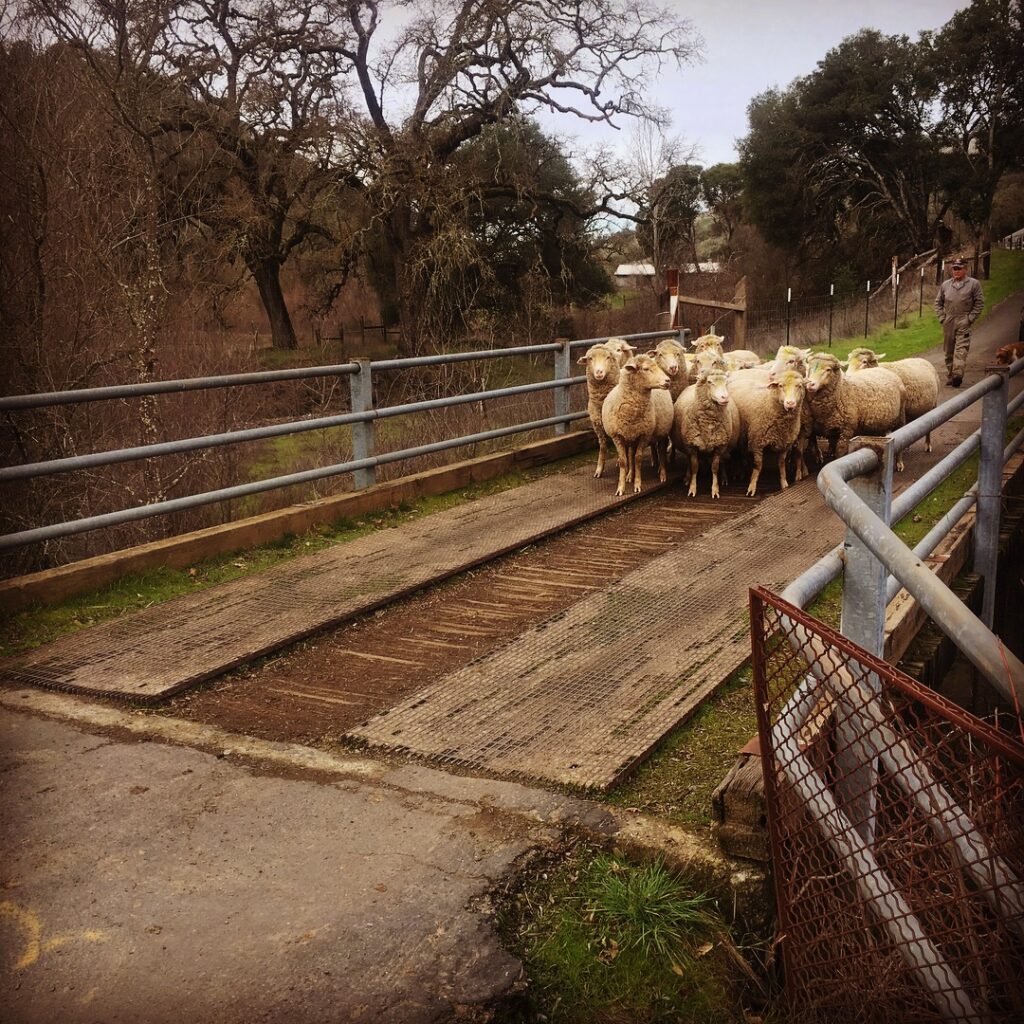
Had I my own land, I would have done what everyone should have: show up and bid well over the asking price for the sheep you bred and shepherded so well and carefully for so long, because that is what people are supposed to do in such unfortunate events, and know to do in other, better-mannered sheep places (Iowa, Montana, Shetland). But I have no place, and was in Modoc County teaching 4-H kids how to trim hooves, among other things. Even so, I regret not finding a way to attend the auction to convey my sorrow to you in person, and share yours. I don’t know if you were there, though I expect you must have been. What would have been worse: being there and having to witness that sheep sale, or not being there at all? As with too many things, if you can’t fix it, you just gotta stand it, the hardest thing.
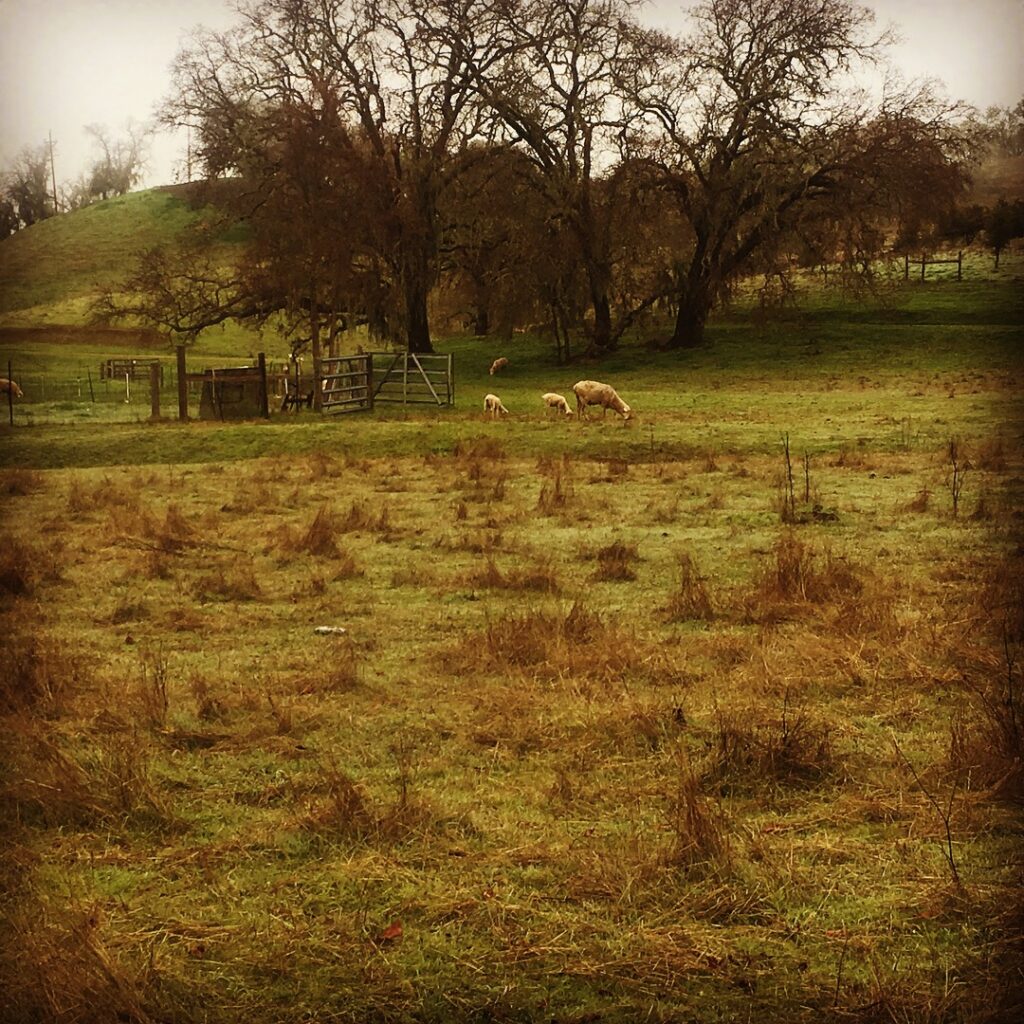
There is a great deal wrong with our culture right now, and the apparent failure of UC budget bureaucrats to recognize how rare you are — an American shepherd, practically unheard of these days! — and how valuable your skills is among them. Now, I don’t know you or your daily work terribly well, but I thank you for your dedicated flock and grazing management that helped save the HREC campus from the 2018 wildfire. I see and count the terrible things you prevented from happening: the people who did not die in an inferno, and the lawsuits to follow; the insurance claims and policy increases from incinerated buildings; the reconstruction costs of buildings like LEED-certified Shippey Hall.
We have not spent much time together, but you taught Hopland students a great deal in those brief windows between sheep, standing in that barn aisle between the tray of decontamination fluid, the sink, and the shearing floor. You blew my mind with stories of when non-lethal predator control works, and doesn’t, and why something that works on one county and landscape won’t necessarily work in another. Many people refuse to acknowledge and hold such complexity, preferring easy, belief-reinforcing answers to very difficult problems. I always liked your refusal to give those.
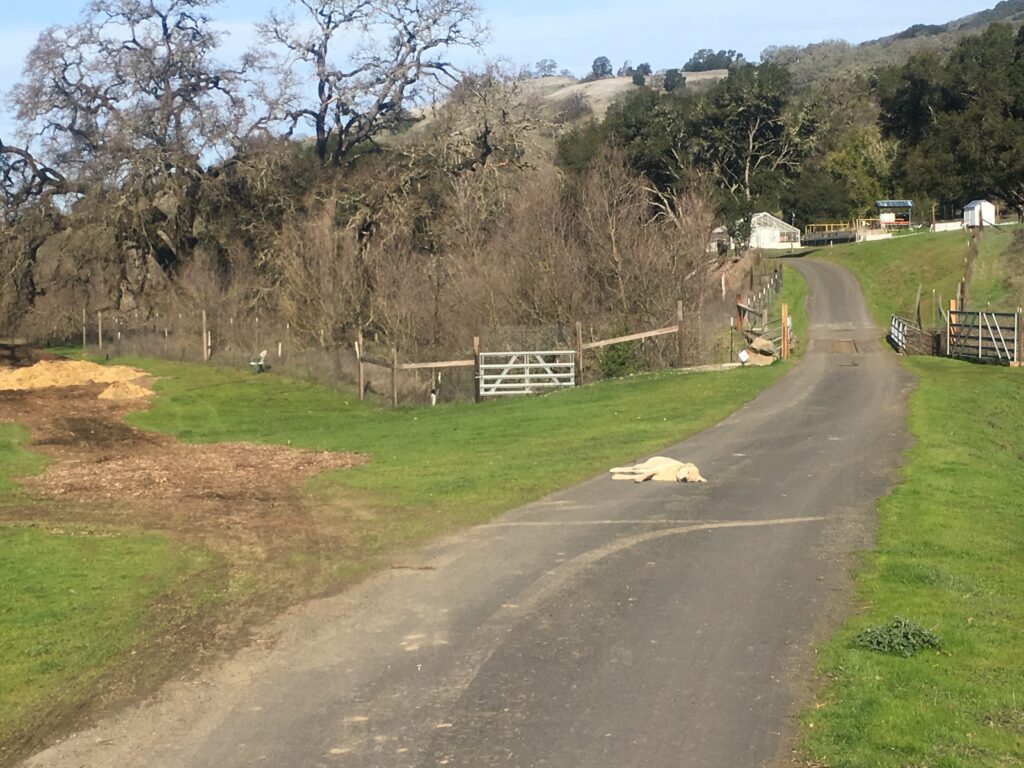
You taught me about herding and livestock guardian dogs (Bodie!), and showed what they were capable of. If anyone had told me that one command could send a herding dog far out of view, have them return with a flock, and then split that flock into groups, I’d have called them a liar. Thanks for the show. You educated me on Q fever, described how bacteria spread it to humans from animals including sheep, and then appropriately restricted my access in the lambing barn. I’m grateful, because Q fever is hell for shearers who have gotten it. They describe six to eight weeks fully laid up in bed, these strong people, with a severe flu-like illness and, worse, persistent and long-term health problems.
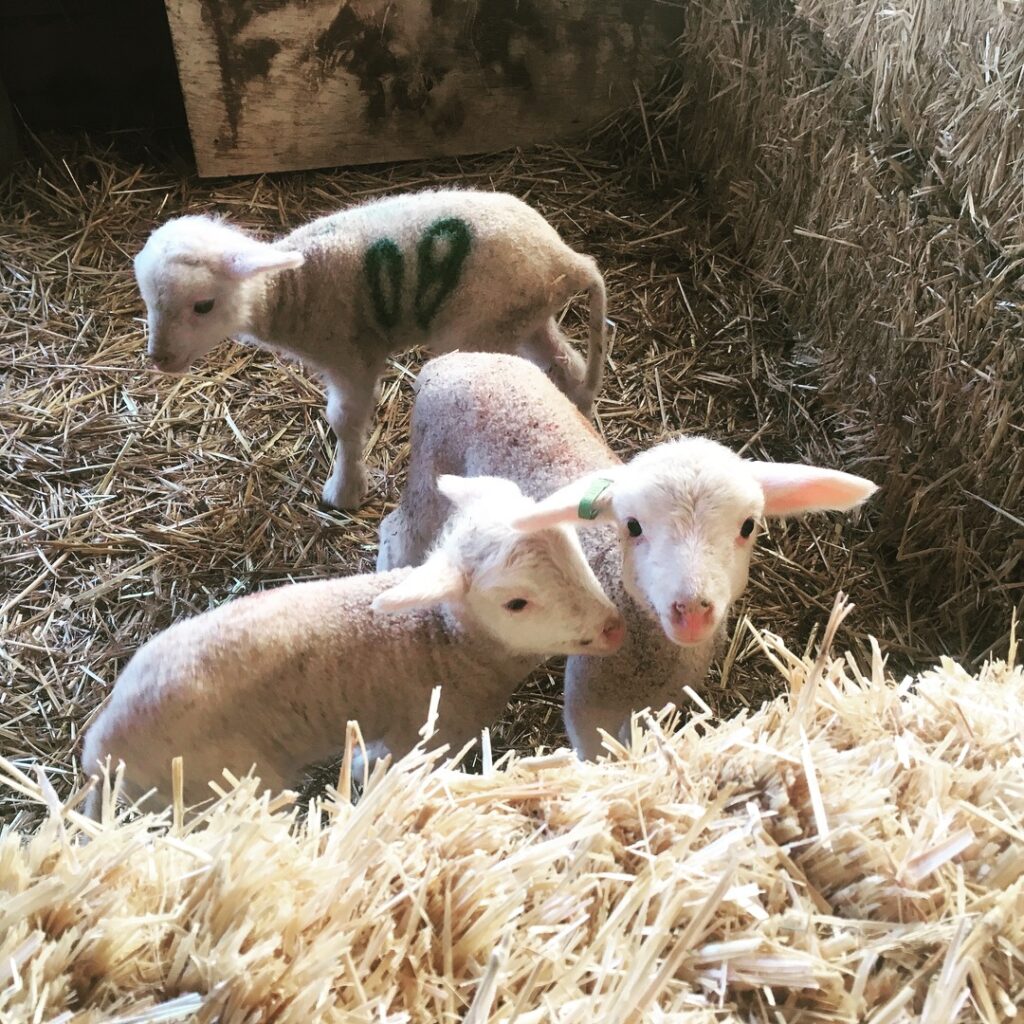
Please know that we all saw how you loved those sheep, even if we cannot fathom how much. You are a true steward. You helped make a lot of shearers. Your impact is lasting, not just on the landscape but on all of the people who have passed through that big barn in which you taught, helped, and supported us…and filled the pens with seemingly endless sheep, over and over again. That’s all right; it was good for us.
I wish I had more words of consolation to offer, but all I feel is outrage and frustration that I’ll just have to shear out of myself. In lieu of that, I thought I’d make something that might console better than my awkward typing ever could: this sweater vest, 100% Mendocino County Targhee like your ewes, sheared by Matt Gilbert (who I’m told was called “barefoot Matt” when he learned to shear at Hopland as a shoeless whippersnapper). It was processed and spun up the road in Ukiah, by Sarah Gilbert, and the yarn is some of the very first to come off the pin drafter and onto the spinner.
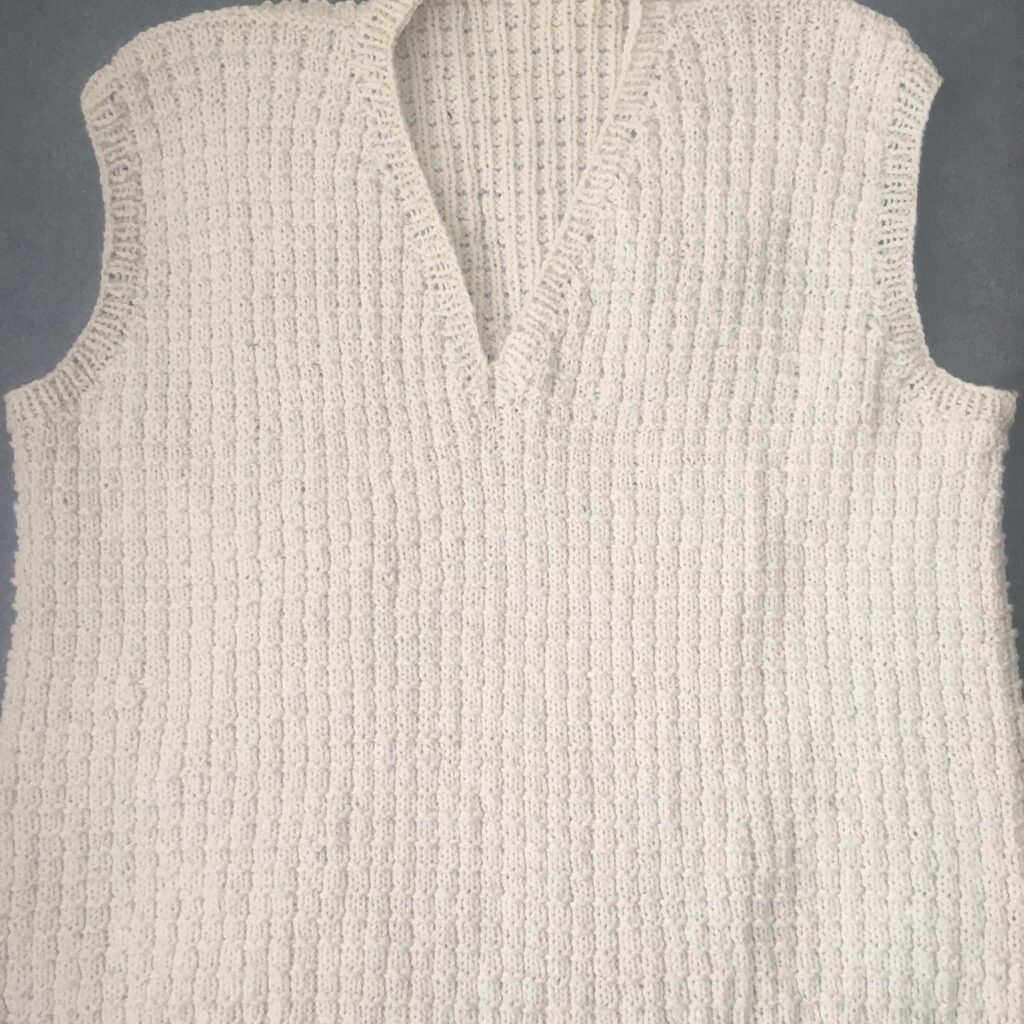
I knit it up into a vest, thinking a sweater might be too warm, and I have no idea if the sizing is right. I tried, because I wanted it to be a surprise. Matt was my fit model, and who knows how close of one, and the rest I estimated from photos of you. If it’s too large or too long or too anything, I can easily fix it; just say the word. The wool was white, but I could see that getting dirty pretty easily knowing you, so I thought I’d dye it gray with eucalyptus and iron, to match the color of the work overalls I so often saw you in.
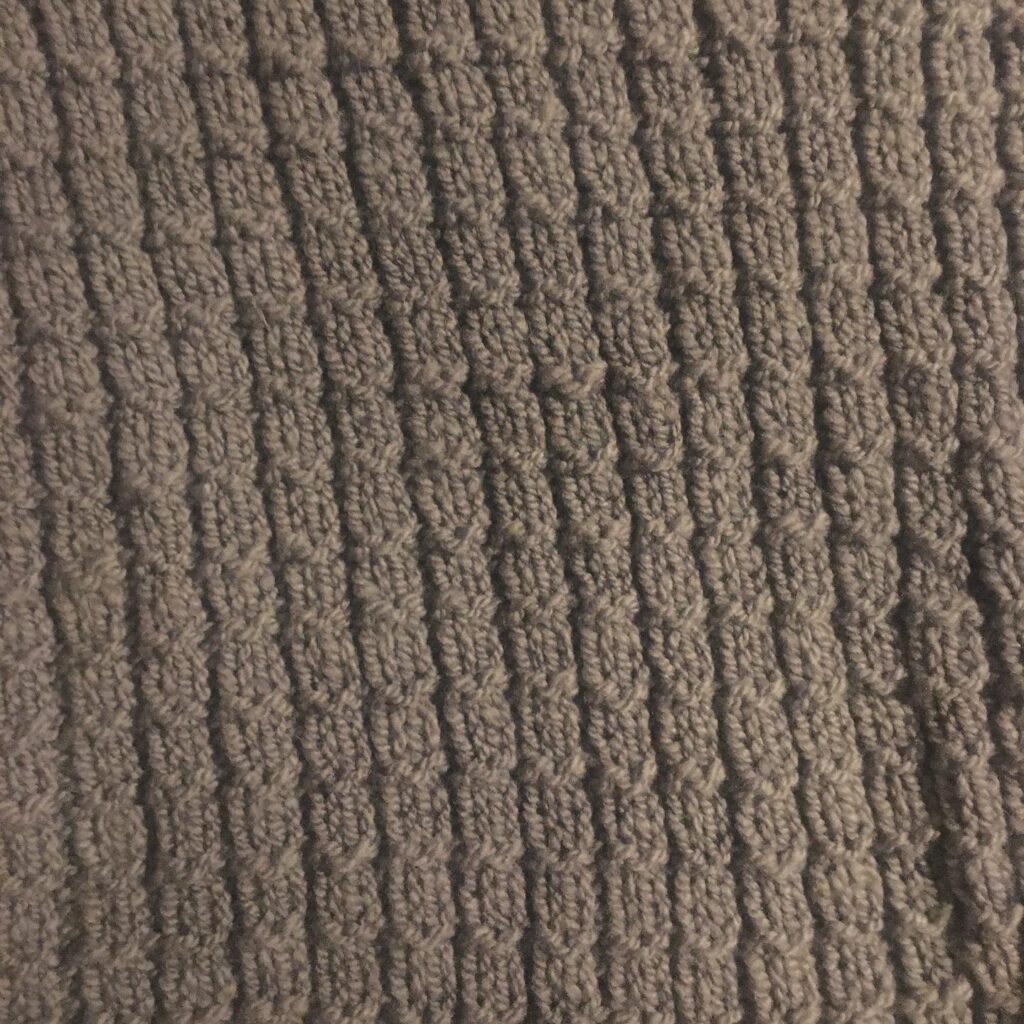
The vest comes too late for your last day at Hopland but, if nothing else, it’s finally sweater vest weather, isn’t it? I hope your grass has germinated. The combination of late rains and cold temperatures have had me worried but, in some places, I’ve seen tiny green spikes and future sheep feed. If you ever need a hand building fence or mucking out pens, give me a shout.
With gratitude, for everything,
Stephany